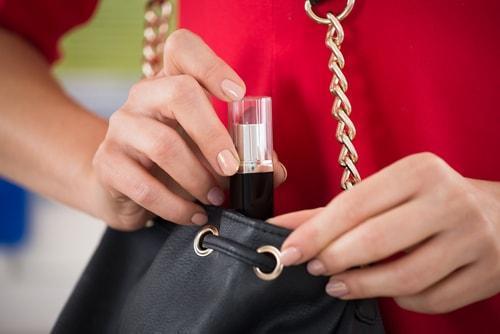Recent Blog Posts
Wrongfully Convicted Man Sent Back to Prison for New Crimes
 The criminal justice system in Illinois was designed with two primary goals in mind. First, those convicted of breaking the law, in most cases, are provided with opportunities to rehabilitate themselves and turn their lives around. The second goal is punitive in nature, meaning that actions have consequences, and when a person commits a crime, he or she is subject to certain penalties which vary depending on the offense.
The criminal justice system in Illinois was designed with two primary goals in mind. First, those convicted of breaking the law, in most cases, are provided with opportunities to rehabilitate themselves and turn their lives around. The second goal is punitive in nature, meaning that actions have consequences, and when a person commits a crime, he or she is subject to certain penalties which vary depending on the offense.
In some cases, however, a person may be convicted of a crime that he or she did not commit. A wrongful conviction can be tragic, as a lengthy prison sentence and other penalties can be devastating to the convicted individual and his or her family. But, as a recent case from Chicago demonstrates, being wrongfully convicted is not always enough to deter some people from a life of crime.
A $25 Million Settlement
In 1993, a 13-year-old was arrested, charged as an adult, and convicted for the gang-related murder of a 19-year-old man. In 2007, the case was reopened as witnesses came forward with new information. The boy—who was then in his mid-20s—was released from prison and his conviction was overturned. He subsequently sued the city of the Chicago and the police department, ultimately winning a $25 million verdict for police misconduct.
Understanding Marijuana Charges in Illinois
 A total of 29 states have adopted medical marijuana laws and eight have legalized the drug for recreational use. Several others have also started to decrease the legal consequences for illegal possession of cannabis and related products. Illinois was one of the ones to recently join these ranks, bringing fairly substantial changes to the state’s approach to charges related to marijuana.
A total of 29 states have adopted medical marijuana laws and eight have legalized the drug for recreational use. Several others have also started to decrease the legal consequences for illegal possession of cannabis and related products. Illinois was one of the ones to recently join these ranks, bringing fairly substantial changes to the state’s approach to charges related to marijuana.
Small Possessions Considered a Civil Penalty
Last year, Governor Bruce Rauner approved the decriminalization of possession of small amounts of marijuana. Now, citizens found with up to 10 grams of the drug receive only a civil penalty, which is similar to a traffic ticket. Consequences include a fine of $100 to $200 per offense. In addition, citations are automatically expunged twice per year.
Overall, this is seen by many as a massive improvement on the previous law, which made possession of up to 10 grams of marijuana a Class B misdemeanor, punishable by up to six months in jail and a fine of up to $1,500. Further, the charge also became part of the individual’s criminal record, potentially impacting his or her ability to find employment or housing. Expungement had to be pursued separately and was not automatic like it is now.
Illinois Drug Courts Support Rehabilitation of Addicted Offenders
 Drug addiction continues to be a serious problem in Illinois and across the United States. Unfortunately, many of the laws and measures that have been enacted in the so-called “War on Drugs” over the last few decades have focused primarily on harsh penalties for drug offenders. While there is something to said for creating deterrents to criminal behavior, a lengthy prison sentence or hefty fine is likely to do little to solve the underlying issue of addiction. With that in mind, states around the country, including Illinois, have developed programs designed to help non-violent, drug-addicted offenders kick their destructive habits and focus on rehabilitating their lives.
Drug addiction continues to be a serious problem in Illinois and across the United States. Unfortunately, many of the laws and measures that have been enacted in the so-called “War on Drugs” over the last few decades have focused primarily on harsh penalties for drug offenders. While there is something to said for creating deterrents to criminal behavior, a lengthy prison sentence or hefty fine is likely to do little to solve the underlying issue of addiction. With that in mind, states around the country, including Illinois, have developed programs designed to help non-violent, drug-addicted offenders kick their destructive habits and focus on rehabilitating their lives.
Mandating Treatment
One of the most effective programs for drug-addicted offenders is known colloquially as Drug Court. The program may have a more specific title in each of the counties in which it has been established, but most Drug Courts—especially in Illinois—are similar in their goals and procedures. The importance of such programs has escalated in recent years with the continued concerns over methamphetamines and resurgence of heroin abuse as a nationwide epidemic. Many addicts will only get treatment if they are somehow coerced into doing so, and subsequent to an arrest, that is exactly the intent of Drug Courts. In most cases, the results of coerced treatment are the same, if not better, than voluntary treatment, making a strong case for the continuation of such programs.
Will County Diversion Program Honors First Graduates
 Throughout the country, states and local jurisdictions have been looking for ways to help drug offenders turn away from a destructive lifestyle and toward becoming more productive members of society. Initiatives such as the Deferred Prosecution Program in Cook County have shown great promise in rehabilitating non-violent offenders while helping them avoid lengthy prison sentences and other harsh criminal penalties. This week, a program with similar goals in a neighboring county began seeing results, as Will County Adult Redeploy Illinois recognized its first graduating class.
Throughout the country, states and local jurisdictions have been looking for ways to help drug offenders turn away from a destructive lifestyle and toward becoming more productive members of society. Initiatives such as the Deferred Prosecution Program in Cook County have shown great promise in rehabilitating non-violent offenders while helping them avoid lengthy prison sentences and other harsh criminal penalties. This week, a program with similar goals in a neighboring county began seeing results, as Will County Adult Redeploy Illinois recognized its first graduating class.
Adult Redeploy Illinois
Created as a diversion program for non-violent offenders, Adult Redeploy Illinois (ARI) was established by legislation in 2009 based on a similar program that has been used in the Illinois juvenile justice system for a number of years. The aim of ARI is to reduce the number of offenders being sent into the state’s prison system and to ease the associated burden on taxpayers.
Plea Bargains Can Reduce Criminal Penalties
 When you have been charged with a crime—especially a non-violent crime such as drug possession—a criminal defense attorney will do everything he or she can to help you avoid a conviction. In some situations, however, the circumstances and the evidence against you may simply be too much. Or perhaps you really did possess illegal drugs or otherwise committed the crime of which you have been accused. While such a situation may seem hopeless, nothing could be further from the truth. There are several options that may be available to help minimize the penalties associated with your prosecution. One of the most common ways of reducing a sentence is by reaching a plea agreement with prosecutors.
When you have been charged with a crime—especially a non-violent crime such as drug possession—a criminal defense attorney will do everything he or she can to help you avoid a conviction. In some situations, however, the circumstances and the evidence against you may simply be too much. Or perhaps you really did possess illegal drugs or otherwise committed the crime of which you have been accused. While such a situation may seem hopeless, nothing could be further from the truth. There are several options that may be available to help minimize the penalties associated with your prosecution. One of the most common ways of reducing a sentence is by reaching a plea agreement with prosecutors.
What is a Plea Bargain?
A plea bargain or plea agreement is the result of a series of negotiations between prosecutors and a criminal defendant—usually handled through his or her attorney. In many cases, the negotiations also include a judge who has the authority to approve alternative sentencing options in advance. When developing a plea agreement, prosecutors will generally offer to lessen the defendant’s sentence by reducing the number or severity of the charges against the individual. Sometimes, a plea deal will even allow the defendant to participate in deferred prosecution or other diversionary programs instead of receiving a standard conviction and sentence. In return, the defendant will usually need to plead guilty or no contest to the agreed upon charges.
Illinois Medical Marijuana Program Set to Run Through June 2020
 In 2013, Illinois lawmakers—led by State Representative Lou Lang, D-Skokie—passed legislation to create an experimental medical marijuana program in the state. The Compassionate Use of Medical Cannabis Pilot Program Act was signed by then-Governor Pat Quinn so that state officials could determine the effectiveness of allowing marijuana to be used in the treatment of certain illnesses and ailments. Supporters of the program were excited by the idea that eligible patients could get relief without fear of prosecution on charges related to the possession or consumption of marijuana.
In 2013, Illinois lawmakers—led by State Representative Lou Lang, D-Skokie—passed legislation to create an experimental medical marijuana program in the state. The Compassionate Use of Medical Cannabis Pilot Program Act was signed by then-Governor Pat Quinn so that state officials could determine the effectiveness of allowing marijuana to be used in the treatment of certain illnesses and ailments. Supporters of the program were excited by the idea that eligible patients could get relief without fear of prosecution on charges related to the possession or consumption of marijuana.
Good Intentions
As a pilot program, the initial medical marijuana measure contained a sunset clause, meaning that the law would automatically be repealed four years after it went into effect on January 1, 2014. If the program was a success, new legislation would be needed to make it permanent.
Northbrook Couple Sentenced in Shoplifting Ring Case
 When you think about shoplifting, there is a good chance you picture an individual surreptitiously sneaking an item or two under his or her jacket or into a handbag. This type of retail theft certainly does occur and retailers lose billions of dollars each year to small-time shoplifters. Sometimes, however, shoplifting can be a much bigger operation—even rising to the level of organized crime. Such was the case involving a seemingly well-to-do couple living on Chicago’s North Shore, as they were recently sentenced in federal court for running a large-scale retail theft ring.
When you think about shoplifting, there is a good chance you picture an individual surreptitiously sneaking an item or two under his or her jacket or into a handbag. This type of retail theft certainly does occur and retailers lose billions of dollars each year to small-time shoplifters. Sometimes, however, shoplifting can be a much bigger operation—even rising to the level of organized crime. Such was the case involving a seemingly well-to-do couple living on Chicago’s North Shore, as they were recently sentenced in federal court for running a large-scale retail theft ring.
Federal Investigation
According to court records, federal authorities followed the couple as they, along with their children, embarked on a four-day, multi-state stealing spree. The couple reportedly went into stores like Toys R Us, Barnes & Noble, and Starbucks, coming out with the wife’s dress “seemingly bursting at the seams,” as she attempted to hide stolen merchandise. The husband, wife, and their eldest daughter were arrested in March of 2014. In 2015, they reached a plea agreement with federal authorities in which they admitted to stealing more than $9.5 million in merchandise over the last 12 years.
Retailer Falsely Accuses Girls of Shoplifting on Social Media
 Shoplifting, along with other forms of retail theft, cost retailers billions of dollars each year. It is perfectly reasonable for retail companies to take serious measures in protecting themselves from these types of losses. Sometimes, however, overzealous store personnel can focus their attention on the wrong individuals—people who have done nothing but come into the store to shop. A recent example in the Chicago suburb of Algonquin demonstrates how problematic false accusations of shoplifting can be, especially when social media becomes involved.
Shoplifting, along with other forms of retail theft, cost retailers billions of dollars each year. It is perfectly reasonable for retail companies to take serious measures in protecting themselves from these types of losses. Sometimes, however, overzealous store personnel can focus their attention on the wrong individuals—people who have done nothing but come into the store to shop. A recent example in the Chicago suburb of Algonquin demonstrates how problematic false accusations of shoplifting can be, especially when social media becomes involved.
Targeting a 12-Year Old
Late last month, a 12-year-old girl and her 13-year-old friend were dropped off at the Target location in Algonquin, Illinois, to do some Christmas shopping. According to reports, the girls walked around the store for about an hour and a half, and each of them bought a few things. The girls say that a little while after they made their purchases—while they were waiting for their ride—store employees began following them. The 12-year-old told news outlets that one the employees accused them of shoplifting and told them to put back the items in their bags.
Cook County Program Helps Non-Violent Offenders Avoid Conviction
 Over the last three decades or so, the approach to crime in the United States has changed dramatically. In the past, communities have tried to fight criminal behavior with harsh penalties and long prison sentences. While the overall crime rate in the United States is lower than it was 20 or 30 years ago, the hardline approach to crime has—in the eyes of many—only served to fill our prisons and perpetuate a criminal lifestyle among convicted offenders. In an effort to stop the cycle of crime, Cook County introduced a program in 2011 that allows certain individuals accused of shoplifting, retail theft, and certain other non-violent crimes to avoid a conviction and prevent them from falling into a criminal lifestyle.
Over the last three decades or so, the approach to crime in the United States has changed dramatically. In the past, communities have tried to fight criminal behavior with harsh penalties and long prison sentences. While the overall crime rate in the United States is lower than it was 20 or 30 years ago, the hardline approach to crime has—in the eyes of many—only served to fill our prisons and perpetuate a criminal lifestyle among convicted offenders. In an effort to stop the cycle of crime, Cook County introduced a program in 2011 that allows certain individuals accused of shoplifting, retail theft, and certain other non-violent crimes to avoid a conviction and prevent them from falling into a criminal lifestyle.
Deferred Prosecution Program
The Cook County State’s Attorney’s Office developed the Deferred Prosecution Program (DPP) as an alternative to traditional conviction and sentencing for adults charged with certain felonies. As a diversionary program, the DPP is intended to address the issues that led the person to commit the offense and to help them modify their behavior to avoid future crimes. To be considered for Deferred Prosecution, a criminal suspect must:
Cook County Prosecutor Announces Change to Felony Charges for Shoplifting
 Retail theft in the form of shoplifting is one of the most common crimes in the United States. It occurs so often that many retailers frequently do not even report incidents to the police because full participation in every alleged shoplifter’s prosecution would be impossible. Of course, when a shoplifter steals merchandise of a particularly high value, retailers are more likely to stay involved. According to Illinois law, stealing retail merchandise valued at $500 or more may constitute a felony offense. A recent announcement by Chicago’s top prosecutor, however, indicates that a significant change is coming regarding how Cook County will pursue felony charges for shoplifting.
Retail theft in the form of shoplifting is one of the most common crimes in the United States. It occurs so often that many retailers frequently do not even report incidents to the police because full participation in every alleged shoplifter’s prosecution would be impossible. Of course, when a shoplifter steals merchandise of a particularly high value, retailers are more likely to stay involved. According to Illinois law, stealing retail merchandise valued at $500 or more may constitute a felony offense. A recent announcement by Chicago’s top prosecutor, however, indicates that a significant change is coming regarding how Cook County will pursue felony charges for shoplifting.
New $1,000 Threshold
This past November, Kim Foxx was elected to serve as the Cook County State’s Attorney after beating the incumbent Anita Alvarez in March’s Democratic primary. As one of her first major policy decisions, Foxx announced in December that she was amending prosecution guidelines for retail theft charges in Cook County. According to the Chicago Tribune, she has instructed county prosecutors that charges for retail theft, including shoplifting, should remain misdemeanors unless the value of the stolen property exceeds $1,000 or the defendant has 10 or more prior felony convictions.







